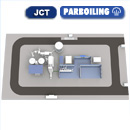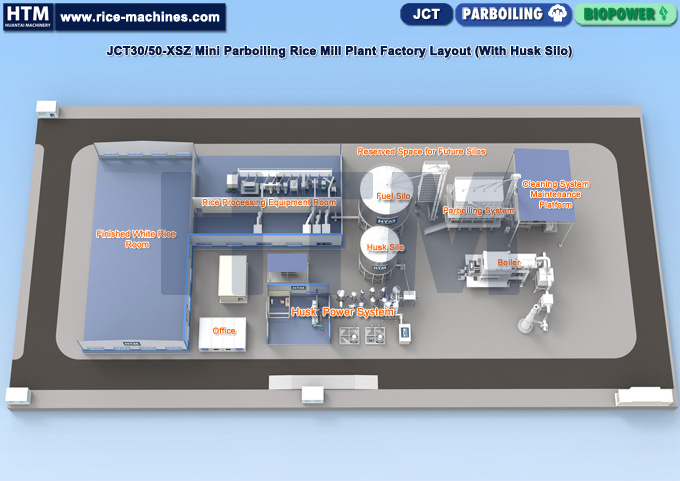| Type |
Input Raw Paddy Capacity |
Output Rice Capacity |
Finished Rice Standards |
| JCT30-XSZ Mini Biomass Parboiling Rice Plant Version |
| JCT30-XSZ Mini + Biomass + Parboiling System (1xWhitening+Grading) --- 18TPD |
2.5TPH |
1.5TPH |
Grade C, Domestic Standard |
| JCT30-XSZ Mini + Biomass + Parboiling System (2xWhitening+Grading) |
2.5TPH |
1.5TPH |
Grade C, Domestic Standard |
| JCT30-XSZ Mini + Biomass + Parboiling System (2xWhitening+Grading+Packing[10~50kg]) |
2.5TPH |
1.5TPH |
Grade C, Domestic Standard |
| JCT30-XSZ Mini + Biomass + Parboiling System (2xWhitening+Grading+Sorting+Packing[10~50kg]) |
2.5TPH |
1.5TPH |
Grade C, Domestic Standard |
| |
JCT50-XSZ Mini Biomass Parboiling Rice Plant Version
|
| JCT50-XSZ Mini + Biomass + Parboiling System (2xWhitening+Grading) |
3.0~4.0TPH |
2.0~2.5TPH |
Grade C, Domestic Standard |
| JCT50-XSZ Mini + Biomass + Parboiling System (2xWhitening+Grading+Packing[10~50kg]) |
3.0~4.0TPH |
2.0~2.5TPH |
Grade C, Domestic Standard |
| JCT50-XSZ Mini + Biomass + Parboiling System (3xWhitening+Grading) |
3.0~4.0TPH |
2.0~2.5TPH |
Grade C, Domestic Standard |
| JCT50-XSZ Mini + Biomass + Parboiling System(3xWhitening+Grading+Packing[10~50kg]) |
3.0~4.0TPH |
2.0~2.5TPH |
Grade C, Domestic Standard |
| JCT50-XSZ Mini + Biomass + Parboiling System (3xWhitening+Grading+Sorting+Packing[10~50kg]) |
3.0~4.0TPH |
2.0~2.5TPH |
Grade C, Domestic Standard |



